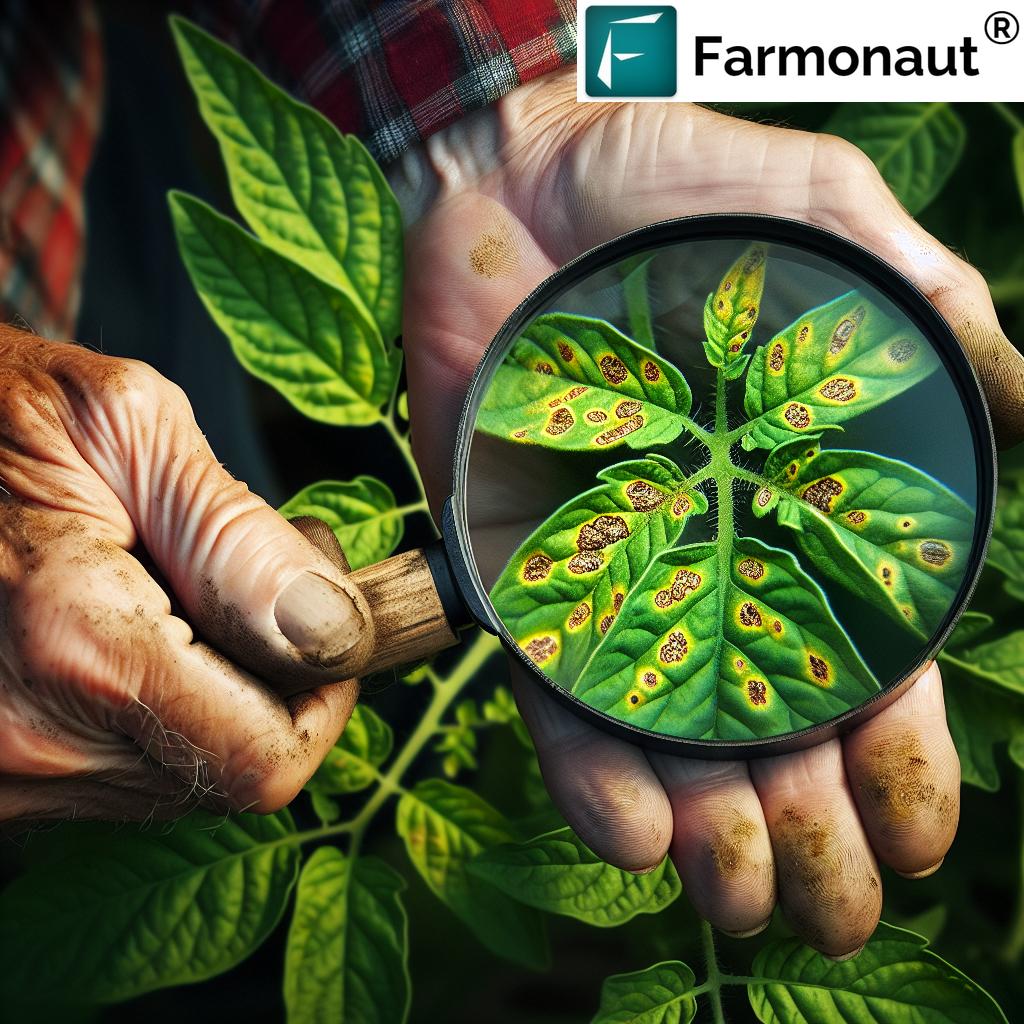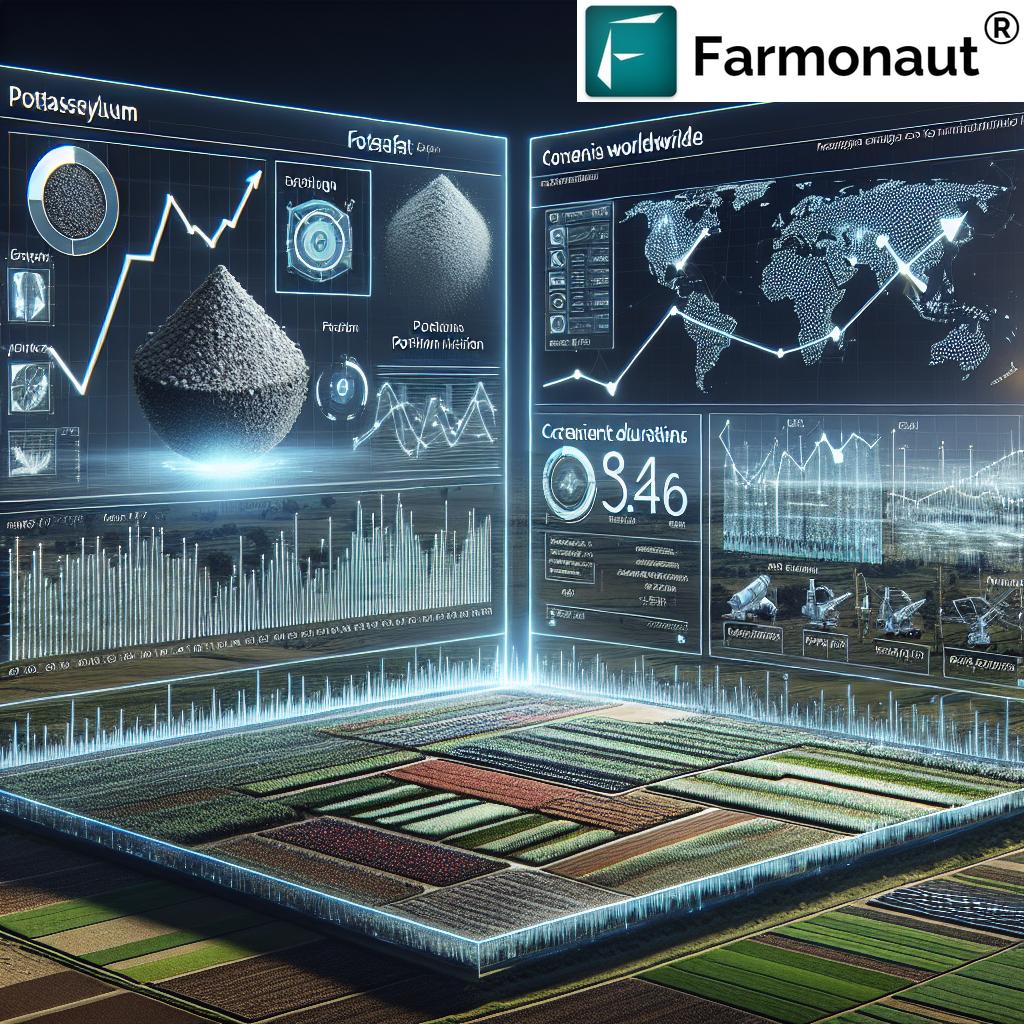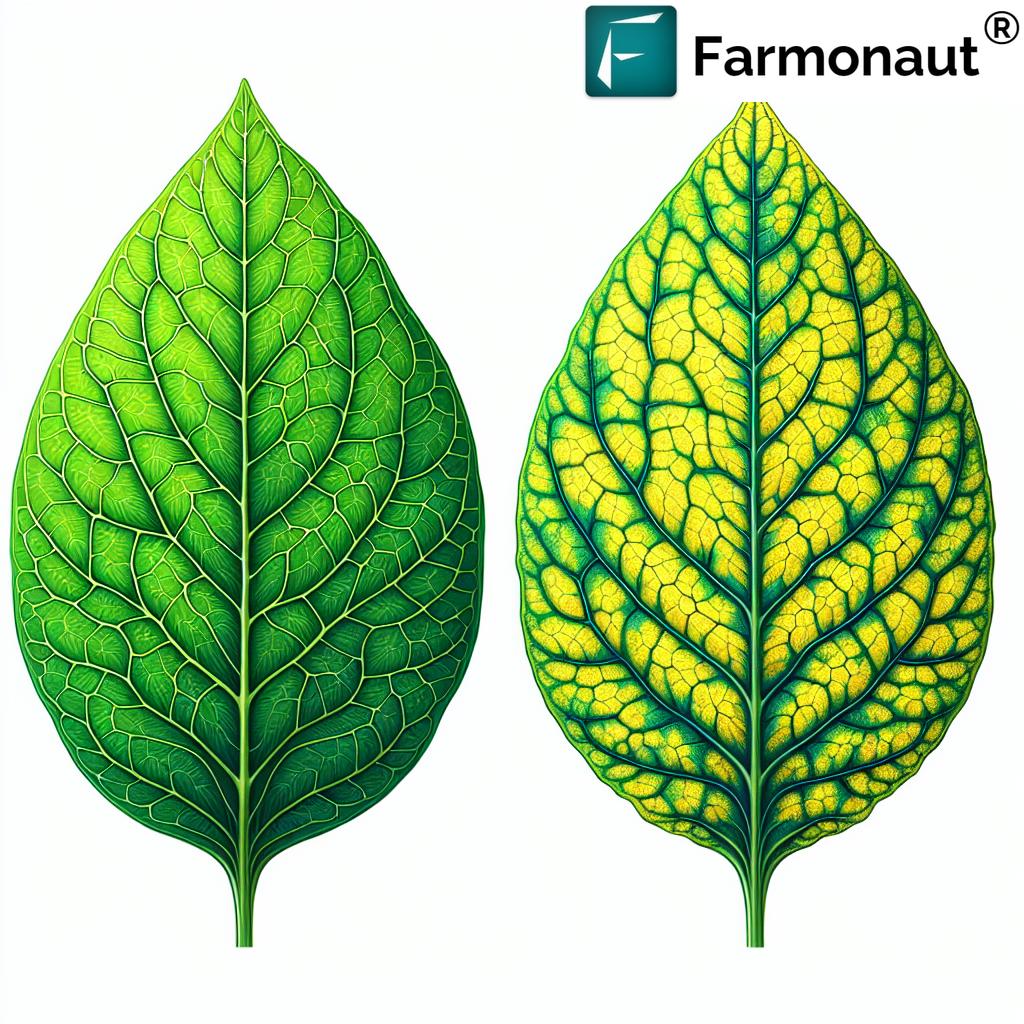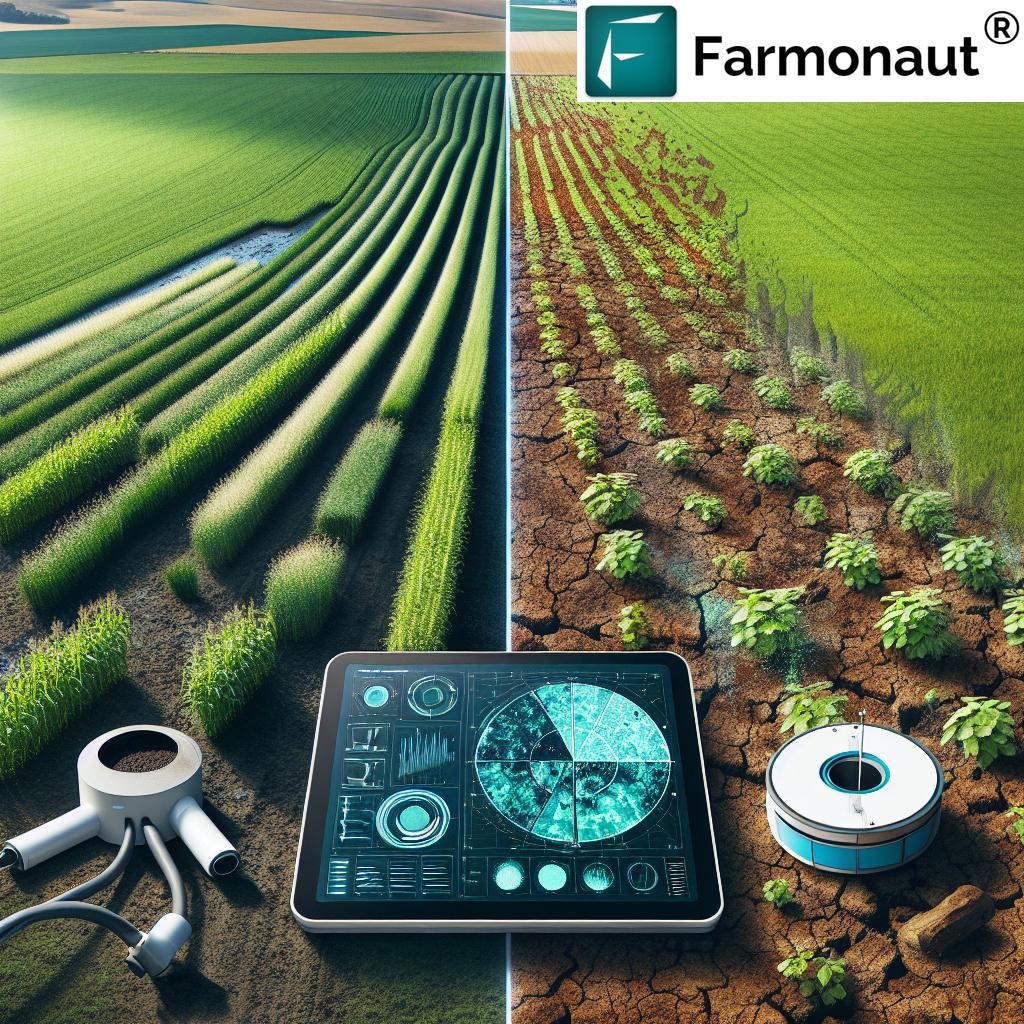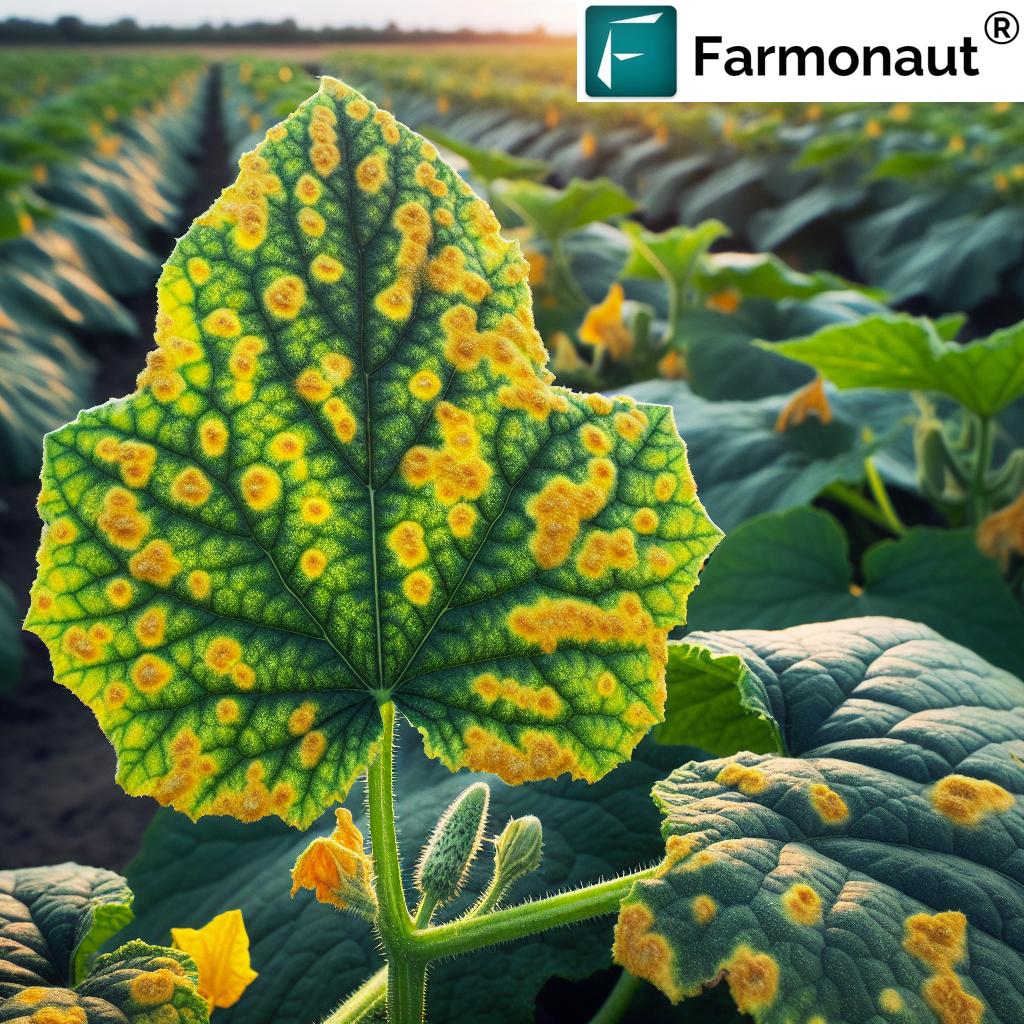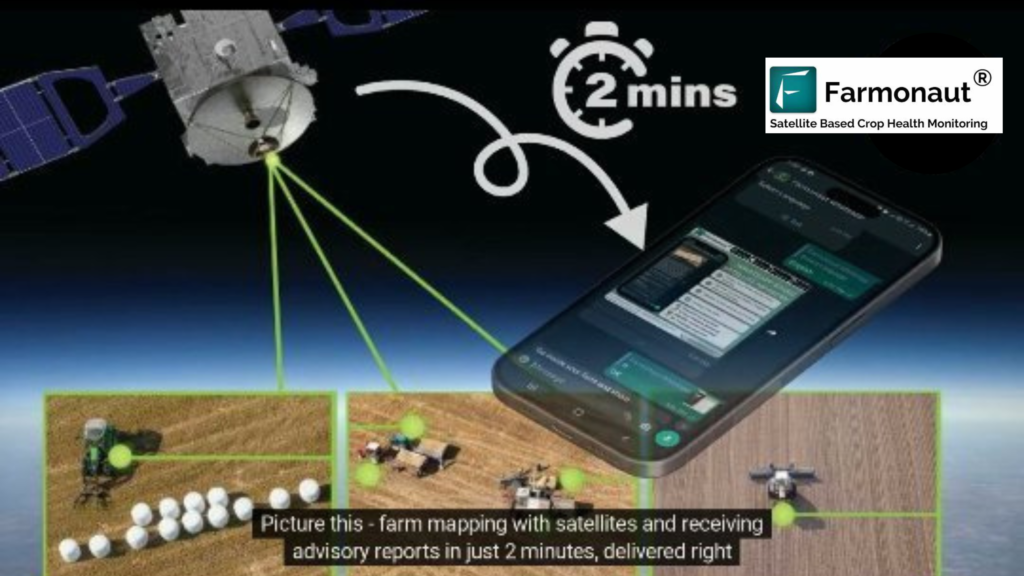Organic Pest Control for Palms: Combating Ommatissus lybicus and Protecting Your Crop
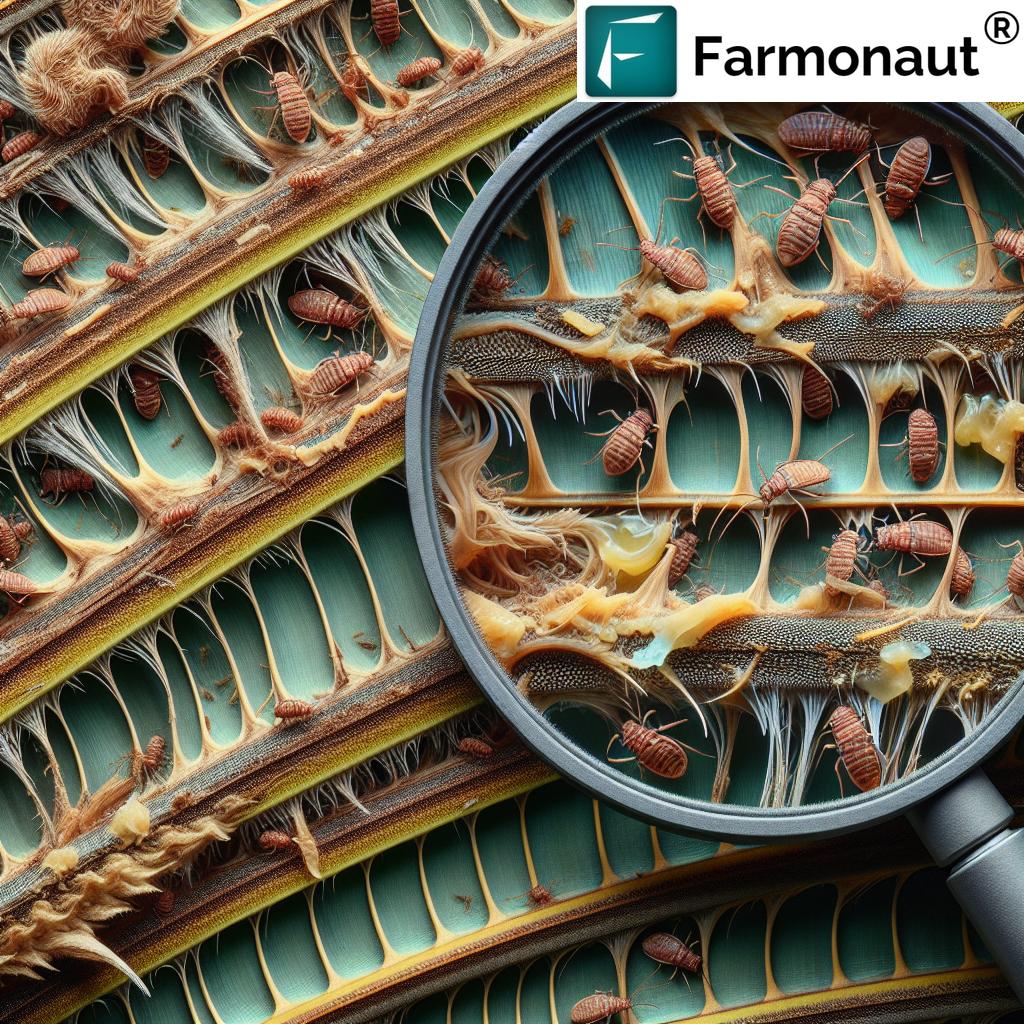
In the world of palm cultivation, one of the most challenging pests that farmers face is the Ommatissus lybicus, commonly known as the dubas bug. This sucking insect has become a significant threat to palm crops, particularly date palms, across many regions. At Farmonaut, we understand the importance of protecting these valuable crops while maintaining sustainable and environmentally friendly practices. In this comprehensive guide, we’ll explore effective organic treatment methods for controlling Ommatissus lybicus and other palm pests, as well as how our advanced satellite technology can aid in early detection and management.
Understanding Ommatissus lybicus: The Dubas Bug
Before delving into control methods, it’s crucial to understand the pest we’re dealing with. Ommatissus lybicus is a host-specific insect that primarily attacks date palms. Here are some key facts about this pest:
- Scientific classification: Kingdom Animalia, Phylum Arthropoda, Class Insecta, Order Hemiptera, Family Tropiduchidae, Genus Ommatissus, Species O. lybicus
- Commonly known as the dubas bug or date palm bug
- Feeds on the sap of palm fronds and leaves
- Has two generations per year in most regions
- Both nymphs and adults cause damage to palm trees
The Impact of Ommatissus lybicus on Palm Crops
The dubas bug can have severe consequences for palm plantations, particularly date palm orchards. Some of the major impacts include:
- Reduced crop yield: Heavy infestations can lead to significant reductions in fruit production and quality.
- Weakened trees: Continuous feeding by these pests weakens the palm trees, making them more susceptible to other diseases and environmental stresses.
- Honeydew secretion: The bugs excrete a sticky substance called honeydew, which promotes the growth of sooty mold on leaves and fruits.
- Economic losses: The combination of reduced yield and quality can result in substantial economic losses for farmers.
Conventional vs. Organic Pest Control Methods
When it comes to managing Ommatissus lybicus infestations, farmers have traditionally relied on conventional chemical treatments. However, there’s a growing trend towards organic and sustainable pest control methods. Let’s compare these approaches:
| Conventional Methods | Organic Methods | Farmonaut Satellite System Benefits |
|---|---|---|
| Use of synthetic insecticides | Natural predators and parasitoids | Early detection of pest hotspots |
| Broad-spectrum pesticides | Biopesticides and plant-based repellents | Precise mapping for targeted treatments |
| Chemical spraying | Cultural practices (pruning, sanitation) | Monitoring of treatment effectiveness |
| Quick results but potential environmental harm | Slower but sustainable long-term control | Data-driven decision making for pest management |
As we can see, while conventional methods may offer quick results, organic approaches provide a more sustainable and environmentally friendly solution. At Farmonaut, we believe in integrating advanced technology with organic pest control strategies to achieve the best outcomes for our farmers.
Organic Pest Control Strategies for Ommatissus lybicus
Let’s explore some effective organic methods for controlling the dubas bug and other palm pests:
1. Biological Control
Biological control involves using natural enemies of the pest to keep its population in check. For Ommatissus lybicus, some effective biological control agents include:
- Predatory bugs like Chrysoperla carnea (green lacewing)
- Parasitoid wasps such as Pseudoligosita babylonica
- Entomopathogenic fungi like Beauveria bassiana
These natural enemies can be introduced or their populations can be encouraged in the palm groves to help control the dubas bug naturally.
2. Cultural Practices
Implementing good cultural practices can significantly reduce pest populations and create an environment less favorable for their growth:
- Pruning: Regular pruning of infected fronds and leaves can help remove pest habitats and reduce infestation.
- Sanitation: Removing fallen plant debris and maintaining cleanliness in the orchard can disrupt the pest’s life cycle.
- Proper irrigation: Avoiding over-irrigation can help reduce humidity levels that favor pest development.
- Intercropping: Planting aromatic herbs or companion plants between palm trees can help repel pests.
3. Biopesticides and Plant-Based Repellents
Several natural substances have shown effectiveness in controlling Ommatissus lybicus:
- Neem oil: Extracted from neem seeds, this natural insecticide disrupts the feeding and breeding of many pests, including the dubas bug.
- Garlic and chili spray: A mixture of garlic and chili pepper can act as a natural repellent.
- Essential oils: Oils like peppermint, eucalyptus, and citronella have shown repellent properties against various insect pests.
4. Sticky Traps
While not a control method on their own, sticky traps can help monitor pest populations and trap adult insects. Yellow sticky traps are particularly effective for catching flying adult dubas bugs.
Implementing an Integrated Pest Management (IPM) Approach
At Farmonaut, we advocate for an Integrated Pest Management (IPM) approach that combines various organic control methods with advanced technology for optimal results. Here’s how our satellite-based system can enhance your IPM strategy:
- Early Detection: Our satellite imagery can detect changes in vegetation health that may indicate pest infestations before they become visible to the naked eye.
- Precise Mapping: We provide detailed maps of your palm groves, allowing for targeted application of organic treatments where they’re needed most.
- Monitoring Effectiveness: Regular satellite imagery updates help track the effectiveness of your pest control measures over time.
- Data-Driven Decisions: Our AI-powered advisory system, Jeevn AI, analyzes satellite data and other inputs to provide customized pest management recommendations.
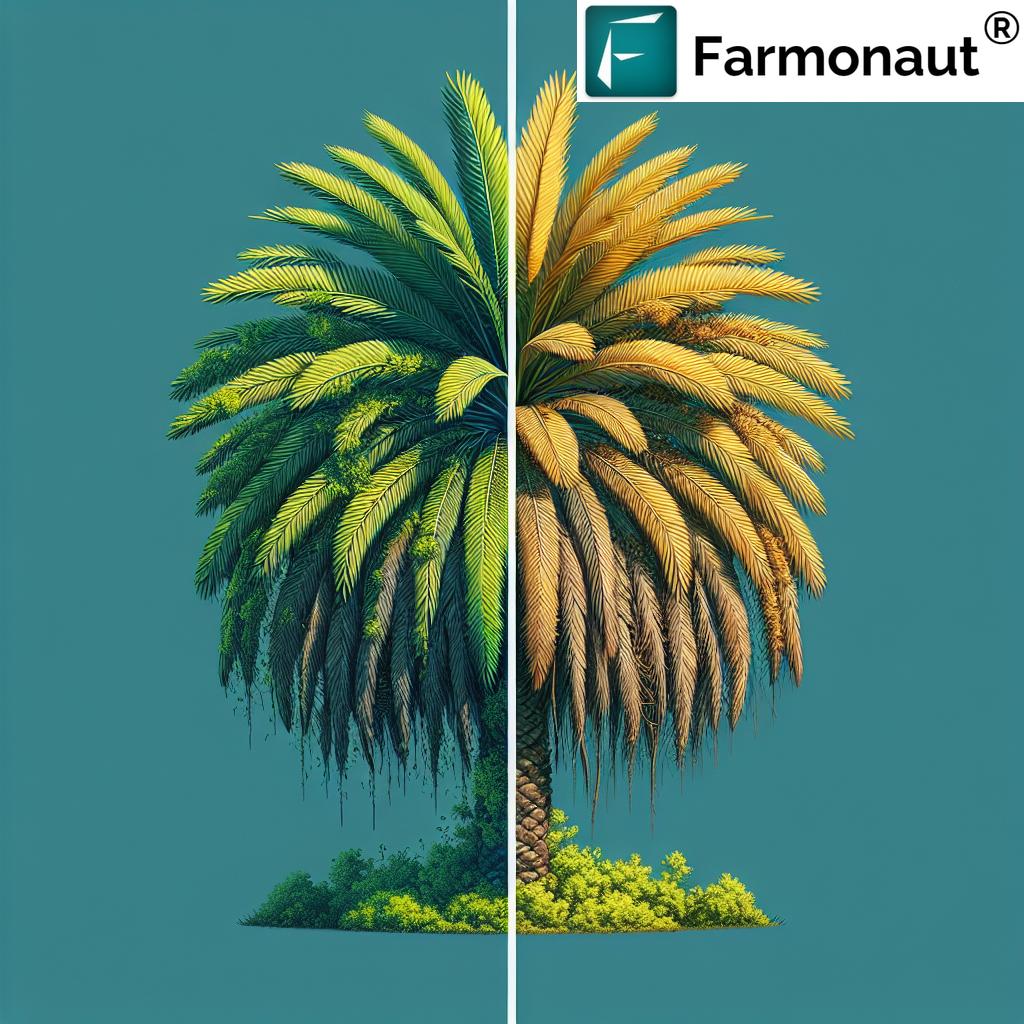
By integrating Farmonaut’s technology with organic pest control methods, farmers can achieve more effective and sustainable management of Ommatissus lybicus and other palm pests.
The Benefits of Organic Pest Control for Palm Crops
Choosing organic methods for controlling Ommatissus lybicus and other palm pests offers numerous advantages:
- Environmental Protection: Organic methods reduce the risk of soil and water contamination associated with chemical pesticides.
- Biodiversity Conservation: By avoiding broad-spectrum insecticides, beneficial insects and other wildlife are preserved.
- Long-term Sustainability: Organic approaches promote a balanced ecosystem that naturally suppresses pest populations over time.
- Consumer Safety: Organic practices result in fruits and other palm products that are free from chemical residues, meeting growing consumer demand for safe, organic produce.
- Cost-Effective: While initial costs may be higher, organic methods often prove more economical in the long run due to reduced input costs and improved soil health.
Challenges in Organic Pest Control and How Farmonaut Addresses Them
While organic pest control offers many benefits, it also comes with certain challenges. Here’s how Farmonaut’s technology helps address these issues:
- Slower Initial Results: Organic methods may take longer to show effects compared to chemical treatments.
Farmonaut Solution: Our satellite monitoring allows for early detection of pest problems, enabling timely intervention before infestations become severe. - Difficulty in Large-Scale Application: Implementing organic methods across large plantations can be labor-intensive.
Farmonaut Solution: Our precision mapping helps identify specific areas requiring treatment, optimizing resource allocation and reducing overall labor needs. - Variable Effectiveness: The efficacy of organic treatments can vary based on environmental conditions.
Farmonaut Solution: Our AI-powered advisory system takes into account various factors like weather and crop health to recommend the most effective organic treatments for your specific situation. - Lack of Immediate Visible Results: Unlike chemical sprays, the effects of organic treatments may not be immediately apparent.
Farmonaut Solution: Regular satellite imagery updates provide objective data on crop health improvements, even when changes are not yet visible to the naked eye.
Case Study: Successful Organic Control of Ommatissus lybicus in Date Palm Orchards
While we don’t provide specific case studies, numerous research studies and field trials have demonstrated the effectiveness of organic pest control methods for managing Ommatissus lybicus in date palm orchards. These studies have shown that a combination of biological control agents, cultural practices, and biopesticides can significantly reduce pest populations and maintain crop yields without relying on synthetic chemicals.
By integrating these proven organic methods with Farmonaut’s advanced satellite monitoring and AI-driven advisory system, farmers can achieve even better results in managing palm pests sustainably.
The Future of Palm Pest Management: Integrating Technology and Organic Practices
As we look to the future of palm pest management, the integration of cutting-edge technology with organic farming practices holds immense promise. At Farmonaut, we’re committed to driving this integration forward. Here’s how we envision the future of pest control in palm cultivation:
- Predictive Pest Modeling: By analyzing historical satellite data, weather patterns, and pest lifecycle information, we aim to develop predictive models that can forecast pest outbreaks before they occur.
- IoT Integration: Combining our satellite data with ground-based IoT sensors will provide even more precise information on pest activity and environmental conditions.
- AI-Powered Treatment Recommendations: Our Jeevn AI system will continue to evolve, offering increasingly sophisticated and tailored organic pest control strategies based on real-time data.
- Blockchain for Traceability: Implementing blockchain technology will allow for complete traceability of organic pest control methods, enhancing consumer trust and potentially opening up premium markets for sustainably produced palm products.
By embracing these technological advancements alongside organic farming principles, we believe that palm growers can achieve sustainable, effective pest control while meeting the growing global demand for environmentally friendly agricultural practices.
How to Get Started with Farmonaut for Organic Pest Control
Ready to revolutionize your approach to managing Ommatissus lybicus and other palm pests? Here’s how you can get started with Farmonaut:
- Sign Up: Visit our website or download our mobile app to create your Farmonaut account.
- Map Your Fields: Use our easy mapping tool to outline your palm groves.
- Access Satellite Data: Start receiving regular updates on your crop health and potential pest hotspots.
- Implement Recommendations: Follow the organic pest control strategies suggested by our AI advisory system.
- Monitor and Adjust: Track the effectiveness of your pest management efforts and adjust as needed based on our ongoing insights.
Ready to take your palm pest management to the next level? Sign up for Farmonaut today!
Frequently Asked Questions (FAQ)
Q: How effective are organic methods in controlling Ommatissus lybicus compared to chemical treatments?
A: While organic methods may take longer to show results, they can be highly effective in controlling Ommatissus lybicus when implemented consistently as part of an integrated pest management strategy. Many studies have shown that organic approaches can match or even exceed the effectiveness of chemical treatments in the long term, with the added benefits of environmental sustainability and improved ecosystem health.
Q: Can Farmonaut’s satellite technology detect Ommatissus lybicus infestations?
A: While our satellites cannot directly visualize individual insects, they can detect changes in vegetation health that are indicative of pest infestations. By analyzing multispectral imagery and vegetation indices, we can identify areas of stress in palm crops that may be caused by Ommatissus lybicus or other pests, allowing for early intervention.
Q: How often should I apply organic treatments for Ommatissus lybicus control?
A: The frequency of organic treatments depends on various factors, including pest population levels, environmental conditions, and the specific methods used. Our AI-powered advisory system takes these factors into account to provide customized recommendations for treatment timing and frequency.
Q: Are there any risks associated with using biological control agents for Ommatissus lybicus?
A: When properly implemented, biological control agents pose minimal risks. However, it’s important to use agents that are native to your region or have been thoroughly tested for environmental safety. Our expert system can help you choose the most appropriate and safe biological control methods for your specific situation.
Q: How can I access Farmonaut’s satellite data and AI recommendations?
A: You can access our services through our web platform at https://farmonaut.com/app_redirect or by downloading our mobile app from the Google Play Store or Apple App Store. For developers interested in integrating our data into their own systems, we also offer API access at https://sat.farmonaut.com/api.
Q: Can Farmonaut’s technology be used for other crops besides palms?
A: Absolutely! While this article focuses on palm pests, our satellite monitoring and AI advisory systems are applicable to a wide range of crops. Whether you’re growing grains, fruits, vegetables, or other tree crops, Farmonaut can provide valuable insights for pest management and overall crop health.
Conclusion
Managing Ommatissus lybicus and other palm pests organically is not just possible—it’s the future of sustainable agriculture. By combining time-tested organic methods with Farmonaut’s cutting-edge satellite technology and AI-driven insights, palm growers can effectively protect their crops while preserving the environment and meeting the growing demand for sustainable farming practices.
Remember, successful pest management is an ongoing process that requires vigilance, adaptability, and the right tools. With Farmonaut by your side, you’ll have the data and insights needed to make informed decisions and implement effective organic pest control strategies for your palm crops.
Ready to transform your approach to palm pest management? Visit our website or download our app today to get started. For more detailed information on our API and developer resources, check out our API documentation.
Together, we can cultivate healthier palms, protect our environment, and ensure a sustainable future for palm agriculture. Join the Farmonaut community today and take the first step towards revolutionizing your pest control practices!


